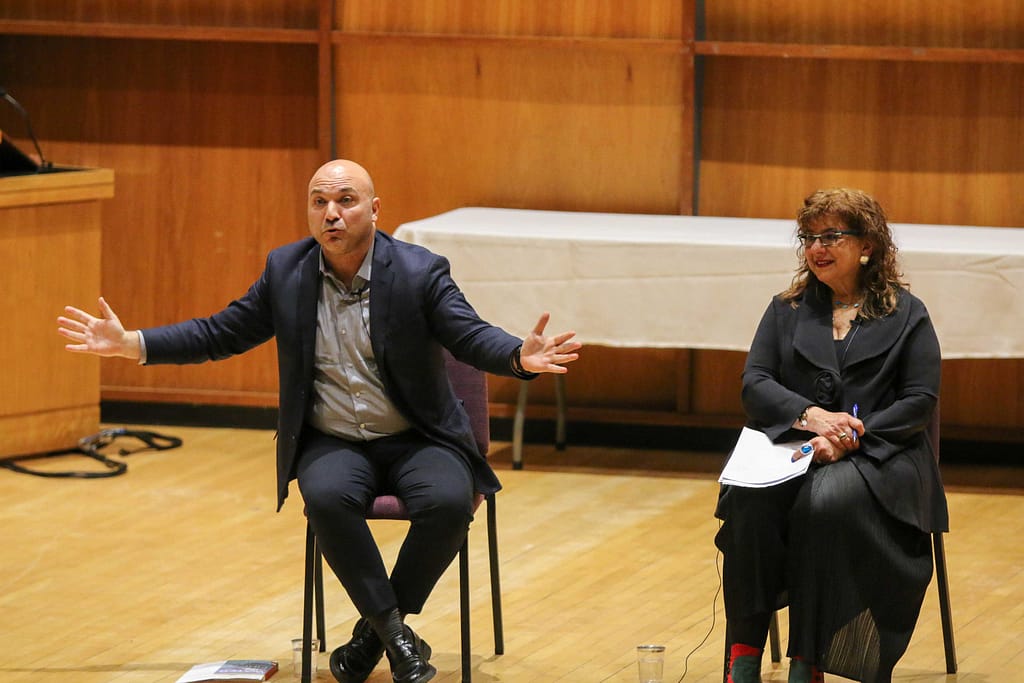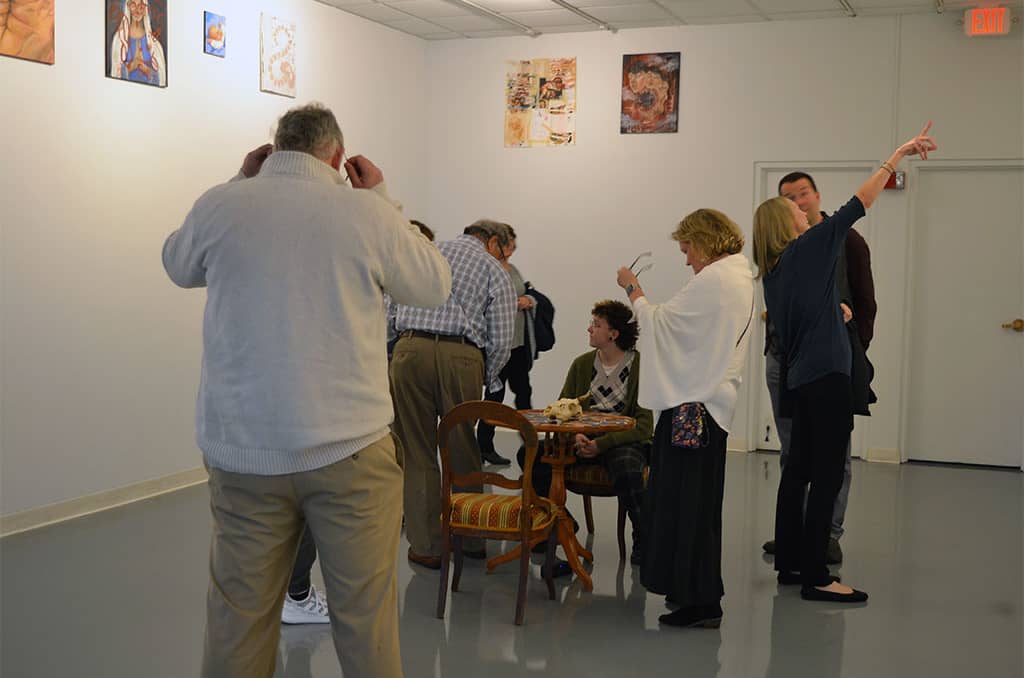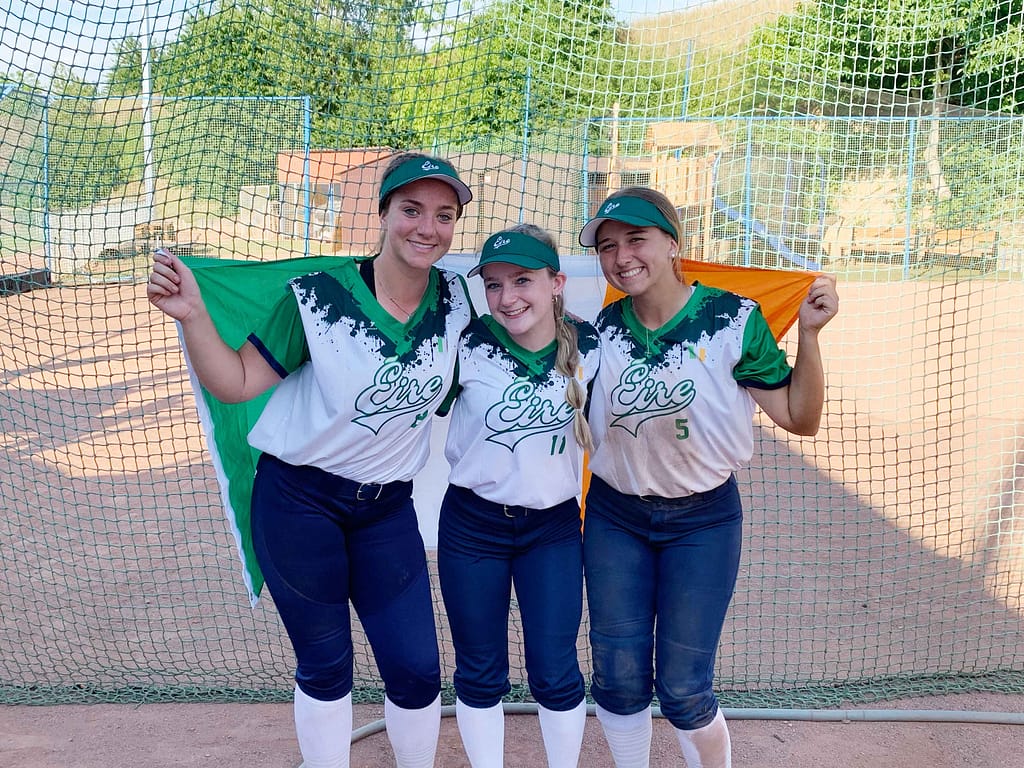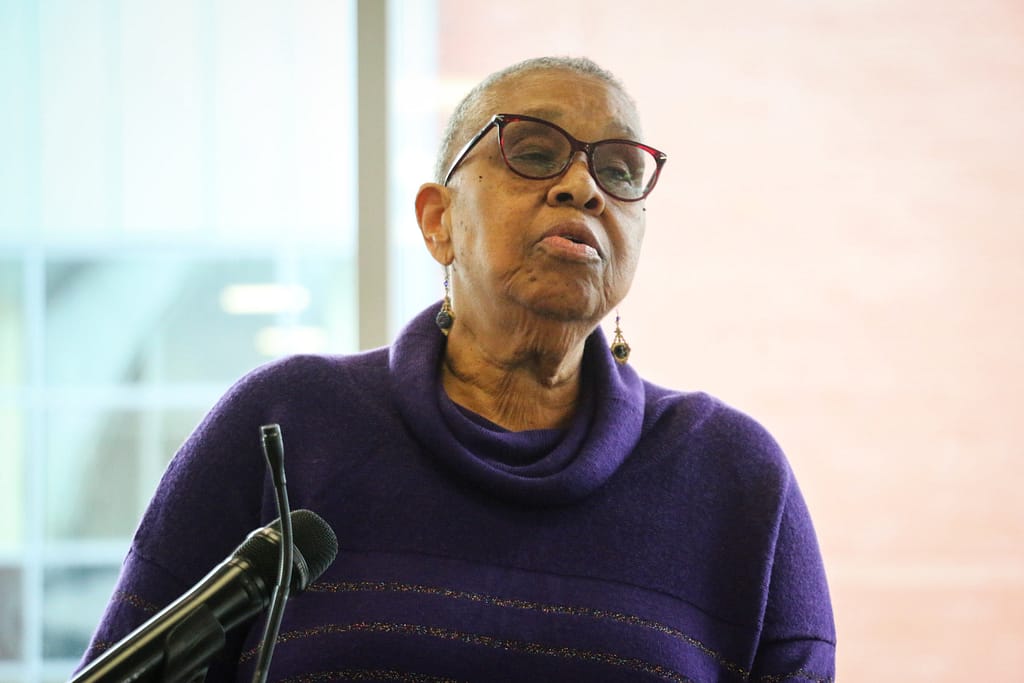Summer research students share progress at luncheon
In this season's final gathering, mentors stress that perseverance and newly acquired skills are positive outcomes even when all did not go as planned
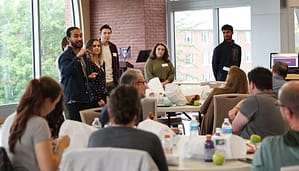
The self-described “Arach-nerds” research group presents. (Photos by Laura Hardin ’22)
Faculty mentors and Saint Michael’s student researchers across many disciplines came together on Wednesday, July 21 in the Dion Family Student Center Roy Room to share updates on their discoveries and inform one another of their findings during the last luncheon of the 2021 summer research program.
Eight weeks have passed since the group’s first engaging summer research breakfast during which student researchers shared their hopes and goals of their future endeavors and projects.
“It’s great to see everyone together,” said Jeff Trumbower, vice president for academic affairs. The VPAA asked students not only to share the positive side of their research, but also emphasize the “roadblocks” they encountered.
One group of collaborating research students, who have labeled themselves the “arachnerds” because they use spiders in their work, shared their progress first. They told how their research consisted of working with the Central American Wandering Spider with mentor, Professor Ruth Fabian-Fine of the biology and neuroscience faculty. One of their biggest findings included a possible medical advance in the research of Alzheimer’s Disease. By comparing the brains of older and younger spiders they have found the “accumulation of electron dense debris within the cells of the brain,” the group said. Many plan on continuing the research throughout the coming semester and benefiting from resources at the University of Vermont to further their findings.
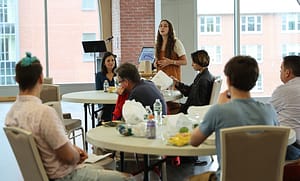
Meghan Geougue ’22 presents.
Meghan Geougue ’22, philosophy and environmental studies double major, shared the hours it took to read through Martin Heidegger’s writings. She then used the strengths of both her majors to capture the ideas of the German philosopher and apply them to environmental movements today. Like Geougue, English major Mara Brooks also mentioned getting lost in the writings of poet Mary Oliver. Both students hope to share their findings in the introduction courses taught by their mentors in the coming fall semester.
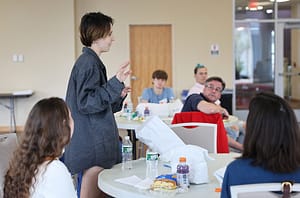
Mara Brooks ’22 describes her work.
Not all student researchers reported the same level of success in their projects — although Trumbower and faculty mentors stressed how the experience of learning to deal with setbacks, trying new things and persevering itself amounts to a success of sorts. Students who worked with mentor and biology Professor Mark Lubkowitz laughed off the roadblocks and difficulties that they encountered over the last few weeks in their presentation: Their stories included one about frying their plants to creating a fungal infection, which led to root-rot.
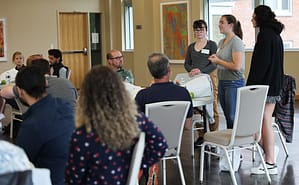
Students working with mentor Mark Lubkowitz of biology tell stories of their summer experiences.
Mentors at the luncheon emphasized that all the projects helped students strengthen key research skills that will advance them in their graduate education and/or careers. When all is said and done, the end-product of each student’s summer research will consist of a 200-500 word reflection paper that states the student researcher’s findings, goals, hopes, and roadblocks that they faced.
However, it does not end there; the students have the chance to send their findings to various academic publications with the hope of being published. Additionally, some will have the chance to conduct a formal presentation of their findings to regional and national conferences.
